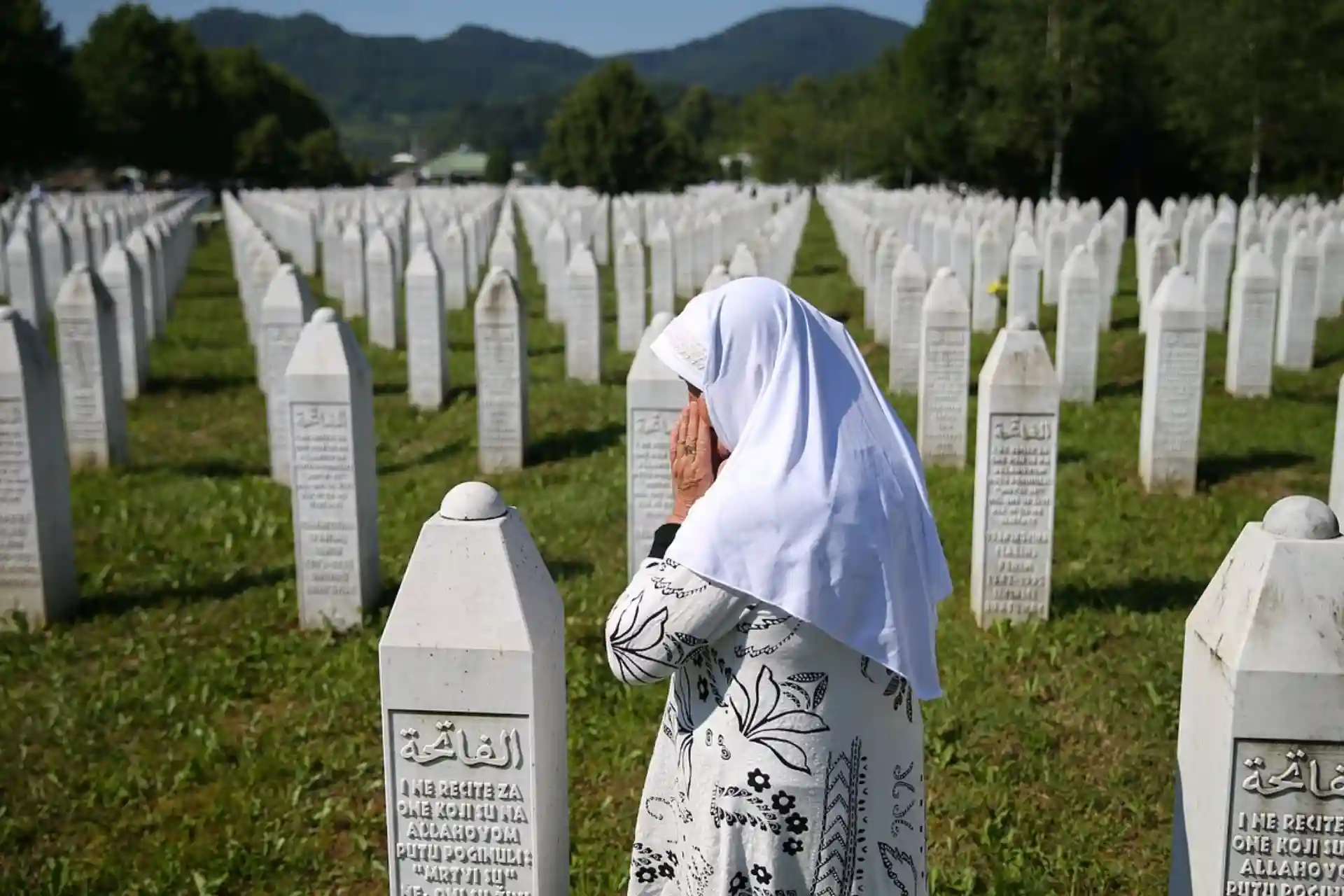The Srebrenica genocide: the massacre behind the silence
In the early 1990s, Yugoslavia broke up and Bosnia and Herzegovina gained independence. At the same time, ethnic tensions between Muslim Bosniaks, Orthodox Serbs, and Croats intensified in the region. Serbian nationalists launched a large-scale ethnic cleansing campaign in Bosnia from 1992 to 1995, based on the idea of a "Greater Serbia," resulting in thousands of deaths and millions of people being displaced.
In March 1993, the UN declared Srebrenica a “safe area” under its protection. The original population of this small town in eastern Bosnia was about 25,000. But more than 40,000 Muslim refugees, displaced from surrounding areas such as Zvornik, Bratunac, Vlasenica and Foca and persecuted by Serbian forces, came to Srebrenica seeking protection . They raised the UN flag and hoped for safety.
In July 1995, the Serbian army, led by Ratko Mladić, captured Srebrenica. Their clear goal was to geographically disperse the central areas inhabited by the Muslims of Podrinje, turning their living space into a “Muslim-free zone.” This was an important step in the “Greater Serbia” strategy.
Bosnian men and boys under the age of 12 were rounded up and executed en masse: an estimated 8,372 were shot, their bodies buried in mass graves and later moved to cover up the evidence. Women, girls, and the elderly were forced onto buses and deported to other areas.
Mladic openly said in front of the cameras in those days:
"This land belongs to the Serbs now. We will take revenge on the Muslims , " he declared .
The then Serbian president (the black leader of the Balkans), Slobodan Milosevic, was a politician who wanted to build the idea of a "Greater Serbia" on blood and tears. His inspired words set in motion the bloodthirsty machine of Ratko Mladic and Radovan Karadzic. While Muslims were being killed in Srebrenica, Milosevic was enjoying the silence of the West in the presidential palace in Belgrade. But justice overtook him, albeit late. Arrested in 2001 due to international pressure, Milosevic was taken to one of the largest trials in human history. On March 11, 2006, he was found dead in his prison cell in Gaj.
How did the UN view this incident?
Dutchbat battalion commander Tom Karremans repeatedly asked NATO for air strikes, but these requests were rejected at least six times. NATO aircraft later destroyed only one tank, but did not stop the massacre. In a 3,400-page report prepared by the Netherlands Institute for War Documentation ( NIOD ) in 2002, the UN's top leadership and Dutchbat were accused of "criminal negligence".
Karremans later admitted that every opportunity was rejected, and that the planes were delayed. These actions show that the UN was silent not out of negligence, but under political agreements.
Many analysts say that behind this UN action, there were some political reasons why countries like France and Great Britain did not apply diplomatic pressure on Serbia.
The global repercussions of this tragedy are not limited to this. Russia provided military and political support to Serbian forces. Many witnesses say that former Russian soldiers who fought in the Chechen war were involved in the attack.
" Greek" founded in Greece Volunteer The Guard military unit (approximately 100 men) was identified as having participated in the attack. Mladic mentioned praising Russian and Greek volunteers and showed a video of the Greek flag being raised in the city. Greek MP Andreas Andrianopoulos recommended an investigation, but Greece did not proceed due to political pressure.
According to reports, this group is called " Golden The group was affiliated with the nationalist organization Dawn , and interestingly, the Greek Orthodox Church also provided moral support to these troops.
The Srebrenica tragedy is an example of how the international system's silence, not just the evil of Serbian nationalists, is the result of political agreements. The only central territory for Muslims was completely destroyed, and the silence of the UN, not weapons, played a leading role in this.
Today, thirty years later, the Srebrenica massacre still "shines" as a black mark on the conscience of humanity. But have we really changed after all these years? No. Another genocide is taking place in Gaza. The occupying Israeli government, led by Netanyahu, is trying to uproot the Palestinians from their land. Those children, those women, those elderly people... Once again, as in Srebrenica, the world is silent. Once again, the UN is making decisions, writing resolutions, but not a single bullet is fired, not a hand is extended.
Oh humanity! How many more tragedies do you need to wake up? How many children's bodies do you need to shake your conscience? How many mass graves do you need to open and ask yourself: "Where was I?" Srebrenica tested you, you fell. Gaza is testing you again, you fall again. Every silence is another bullet, another grave.

